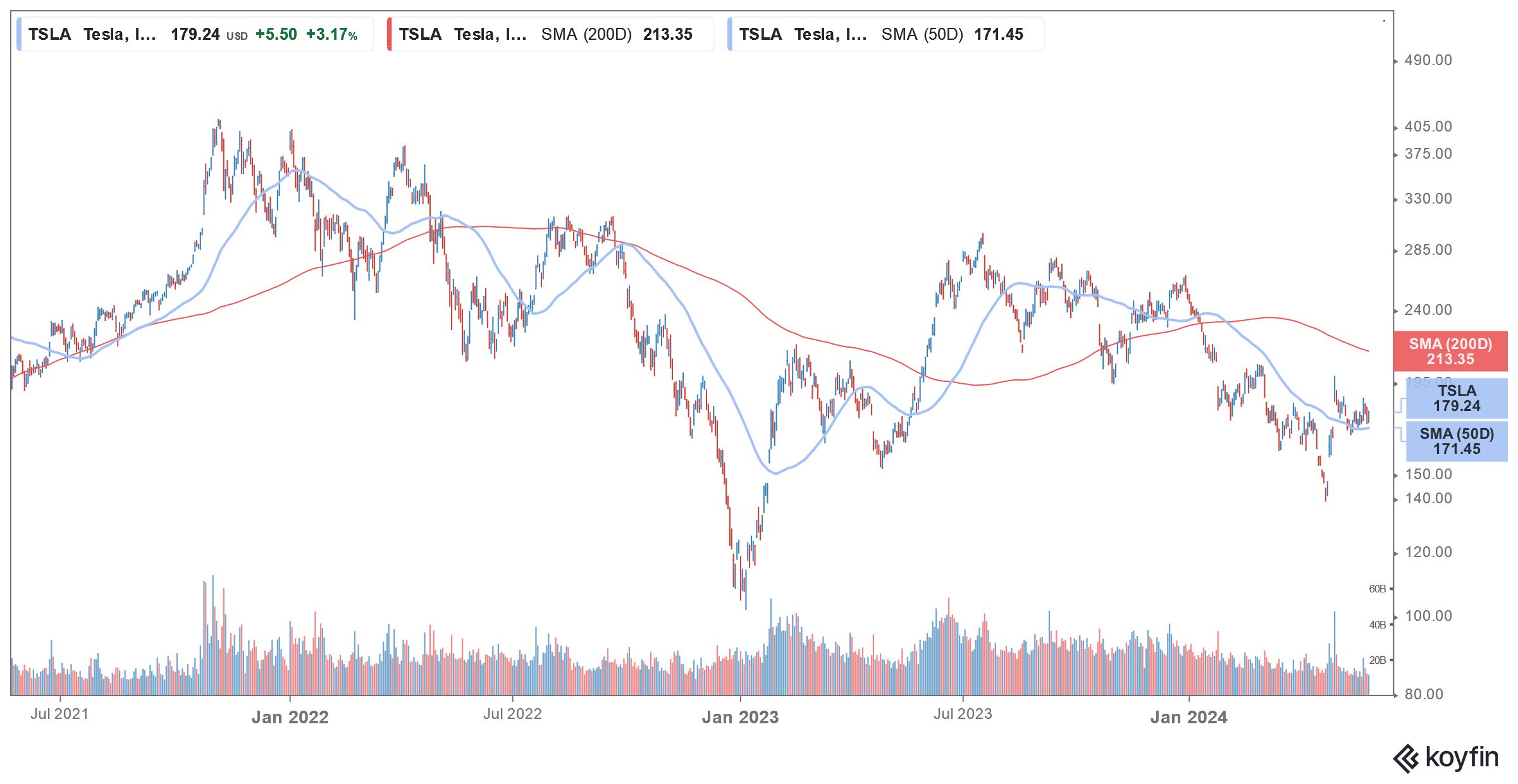
Tesla CEO Elon Musk has opposed the massive tariffs that US President Joe Biden has imposed on imports of electric vehicles (EVs) from China. The mercurial CEO has been at odds with several of Biden administration policies with the recent tariffs on Chinese electric cars being the recent one.
For context, earlier this month, President Biden imposed tariffs on $18 billion of imports from China under Section 301 of the Trade Act of 1974. Unlike his predecessor Donald Trump who imposed blanket tariffs on imports from China, Biden’s tariffs are aimed at select goods which among others include renewable energy and electric cars.
Biden quadrupled tariffs on imports of EVs from China
Specifically, tariffs on Chinese EVs have been increased from 25% to 100%. “With extensive subsidies and non-market practices leading to substantial risks of overcapacity, China’s exports of EVs grew by 70% from 2022 to 2023—jeopardizing productive investments elsewhere. A 100% tariff rate on EVs will protect American manufacturers from China’s unfair trade practices,” said the White House in its statement.
Notably, the Biden administration took several steps to boost EV adoption in the country. It has linked the EV tax credit to the localization of production – including that of critical battery metals. After the targeted policies, companies like Toyota announced new investments in the US in an apparent bid to make its EVs eligible for the $7,500 EV tax credit.
According to the White House statement, “The increase in the tariff rate on electric vehicles will protect these investments and jobs from unfairly priced Chinese imports.”
Elon Musk opposes tariffs on China
Meanwhile, speaking at the VivaTech conference in Paris, Musk opposed these tariffs and said, “Neither Tesla nor I asked for these tariffs.” He added, “In fact, I was surprised when they were announced.”
Notably, China is the second biggest market for Tesla after the US. The company has a Gigafactory in Beijing which is regarded as the company’s most efficient plant.
However, relations between Tesla and China have soared somewhat and the company hasn’t been able to get permission to expand its Berlin factory.
Notably, last year, the Communist country chided Musk after he replied to a tweet about a report about the COVID-19 pandemic’s connection to China.
In its report, The US Department of Energy concluded with “low confidence” that the COVID-19 pandemic “likely” originated in a lab in Wuhan. China has been quite itchy about being linked to the pandemic even as the first cases of the virus which took away millions of lives across the world were reported in Wuhan.
While Musk tends to speak his mind (often controversially) about various topics, he has in general not been public with his views on China – at least critically.
Musk has been all praise for Chinese EV companies
The billionaire has meanwhile been all praise for Chinese EV companies and the country’s EV ecosystem. During Tesla’s Q4 2023 earnings call earlier this year he said, “Frankly, I think, if there are not trade barriers established, they will pretty much demolish most other companies in the world.”
He added, “The Chinese car companies are the most competitive car companies in the world. So, I think they will have significant success outside of China depending on what kind of tariffs or trade barriers are established.”
Elon Musk believes a Chinese company could outflank Tesla
In Q4, Chinese EV giant BYD surpassed Tesla to become the biggest seller of battery electric vehicles. In May last year, Musk termed the company “highly competitive.” Incidentally, in 2011 though he ridiculed the possibility of BYD becoming its competitor. Musk has praised Chinese EV companies multiple times in the past.
During Tesla’s Q4 2022 earnings call, Musk said, “we have a lot of respect for the car companies in China. They are the most competitive in the world. That is our experience.”
According to Musk, “They work the hardest and they work the smartest. And so, if I were to guess, probably some company out of China is the most likely to be second to Tesla.”
Musk has also praised the worth ethics of Chinese workers for “burning the 3 a.m. oil” while criticizing American workers for “trying to avoid going to work at all.”
Tesla to roll out FSD in China
Recently, Tesla received permission to roll out its full self-driving (FSD) in China Separately, the company announced a deal with Baidu and would use the Chinese tech giant’s mapping and navigation technology for the service – a move that was seen as an enabler for the permissions.
The permissions were held up for apparent concerns over data. Notably, China previously barred Tesla cars from military complexes over spying concerns.
China has been even more protective of the data of its citizens. It has banned government employees from using Apple’s iPhone and the Cupertino-based company removed Meta Platforms’ apps from the Chinese App Store earlier this month on orders from the government. Meta’s apps like WhatsApp and Threads were anyways mostly inaccessible to Chinese users but Apple removing them from the App Store makes it even tougher to access these apps in the country.
China has also ordered Chinese ride-hailing app Didi to delist from the US over concerns over the data of millions of Chinese consumers that the company possessed.
Meanwhile, while Musk might not agree to tariffs being imposed on Chinese EVs (likely to remain in the good books of the Chinese leadership), countries globally are worried about Chinese EVs flooding their markets.
Chinese EV companies are especially facing the heat in Europe and the EU is contemplating imposing tariffs on imports of EVs from China. The regulator has a self-imposed deadline of July 4 to decide on these tariffs.


Question & Answers (0)